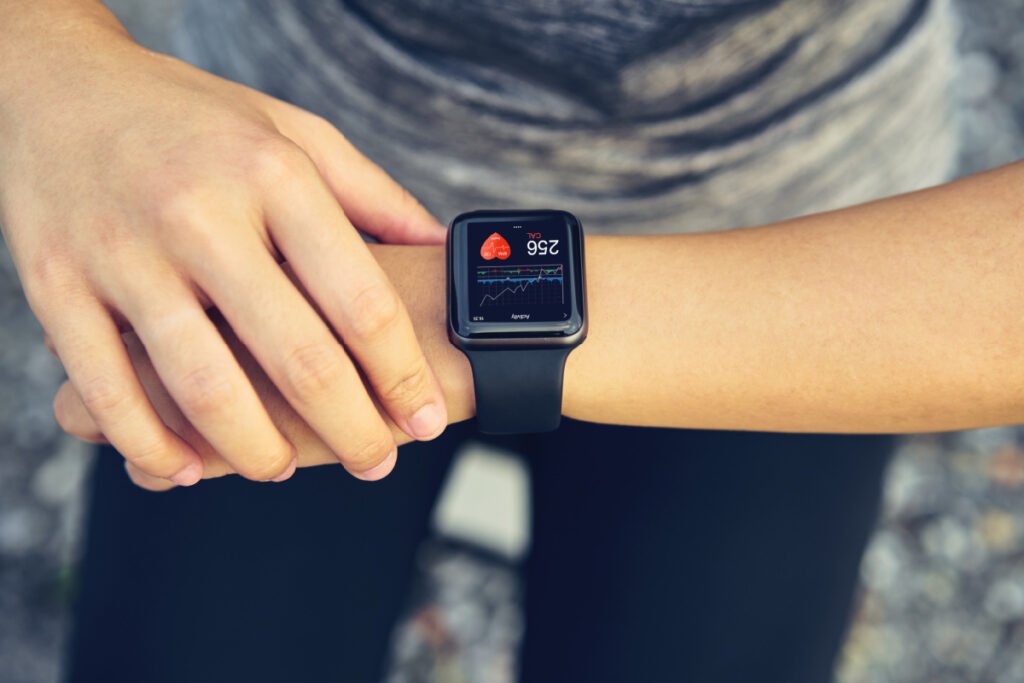How to Set Healthy Boundaries With Your Fitness Tracker

Do you constantly check your smart watch, even when you’re not exercising? As devices have become more advanced, we have the option to track every aspect of our lives, from calories to hours of sleep and even sun exposure.
While this “personal data” seems handy for getting fit or losing weight, it’s easier than ever to have an unhealthy relationship with technology. And studies show that tracking these metrics alone may have no effects on health outcomes or unhealthy behaviors.
Below, our Rancho Cucamonga medical weight loss experts explain.
The dangers of fitness tracking
Numbers can encourage unhealthy behavior
Most smartwatches have virtually the same services as your phone, plus features like step counting and even sleep cycle monitoring. The connection smartwatches give us with health and wellness trackers make them super convenient, but perhaps to a fault: any time we give something a number, it can be addictive—whether you want that number to move up, down, or have it stay the same.
On top of that, the device is attached to your body, so smartwatches are easy to check repeatedly without having to fish your phone out of your bag or pocket every time you get a notification. You may be overly attentive to your device simply because it’s so easy to look and look again.
Further, smartwatches also provide visual tools that encourage you to complete your goals and typically reward you with fun notifications (or notes that you didn’t quite meet your goals). These features can easily trigger people who are especially sensitive toward reaching numeric goals or completing tasks. And studies have shown a connection between fitness tracking and eating disorder symptoms.
Competition isn’t always healthy
In addition to driving you to beat your “personal best” stats, many smartwatch apps feature shareable summaries that encourage you to share them with friends and family. This data can be effective for personal tracking, but sharing this information with other people often results in unhealthy competition and comparison. It could even backfire: comparing yourself to others may make you feel inadequate and be de-motivating, even if you’re showing progress toward your personal goals.
Tracking your fitness alone may not help you lose weight
Research studies have found that knowing your miles run, steps taken, and calories consumed does not, when used alone, improve your health or BMI or lead to behavior changes.
Tips for healthy use of a smart watch
Set limits on apps and notifications
Not all people with smartwatches develop an unhealthy relationship with them. Smartwatches can be the most helpful when you take them off to assess your goals and check in with your body without a device mediating the experience—take cues from your body, not a device.
You do not serve your smartwatch; it should be the other way around—the device serves you, helping you to reach your personal goals.
Determine how you will use the device and consider scaling back on the number of apps you have on your watch. This will keep you from looking at it more than what is needed to support your goals and help remind you to only wear it when necessary.
You can also limit or disable notifications on both your phone and watch so you check your smartwatch less and avoid forming habits you’ll have to break later.
Adjust how you think about goals
If you have a day where you don’t quite reach your goals, remember that progress is key—not perfection. One of the most important things to remember when setting goals with your smartwatch is that it’s okay if you don’t meet them every day. It’s completely normal to have days where you just don’t feel like meeting your goals or are struggling with pressures from work or home that prevent you from doing so.
Be kind to yourself and remember why you set the goals in the first place. If a day has gone off course, focus on getting back on track for the next one.
Weight loss should involve sustainable habits
Smartwatches can help you stay on top of your daily goals, but the success of your weight loss journey depends on creating lifestyle and diet changes that you can maintain long-term.
Fitness trackers simply can’t account for all the variables that make up your ideal health standard and should be viewed only as a tool to help you become more aware of your body and habits—not as the key to weight loss.
Our Inland Empire weight loss surgeons are here for youOur highly experienced Rancho Cucamonga weight loss surgeons understand the importance of your quality of life. If you are considering weight loss surgery, the team at Surgical Arts of Inland Empire is here to educate you on your options to help you feel more comfortable in your body. We offer a full range of highly effective procedures, including gastric bypass surgery, lap band surgery, and even post-weight loss body contouring.
Schedule your free consultation with our wonderful team and find out if we are a good fit for you, risk-free. Call (909) 579-3111 or contact us online to book your consultation today!
